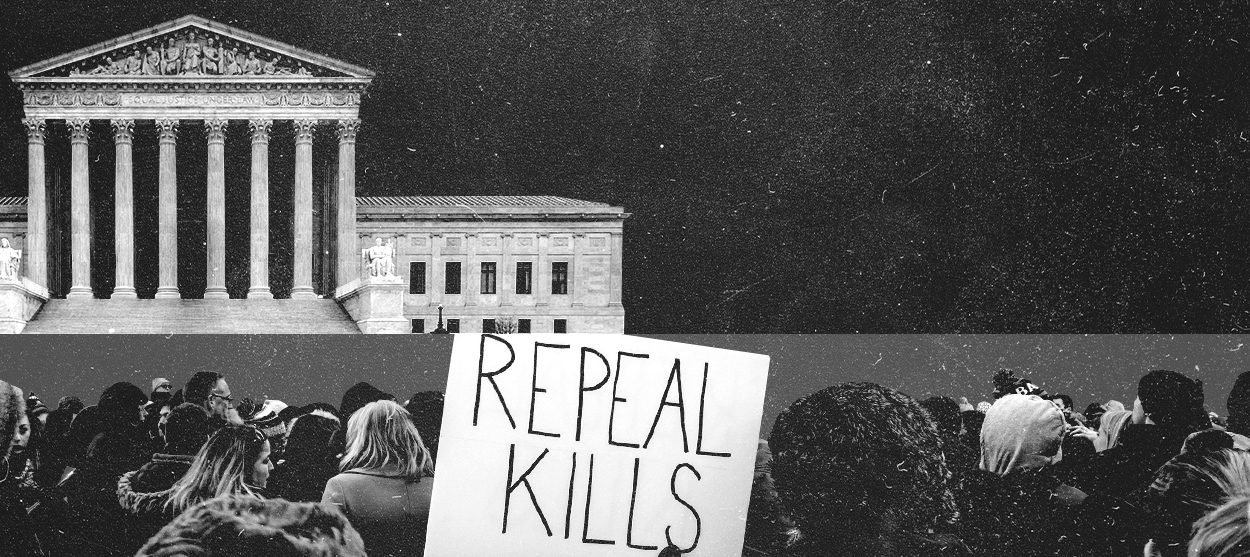The Supreme Court's looming ObamaCare ruling
The life-or-death consequences of a conservative majority could soon become very real


A free daily email with the biggest news stories of the day – and the best features from TheWeek.com
You are now subscribed
Your newsletter sign-up was successful
The Supreme Court's decisions have real consequences for how we live our day-to-day lives as citizens of the United States. They influence everything from whether we can get married to the people we love, where we go to school and who sits next to us in class, how we practice our religion, whether we can vote, and the dynamics between employers and employees. The court doesn't get the answers to all these questions right, but its rulings are not airy, theoretical, or ephemeral. They're real, and they reverberate.
So it is natural that the fight over replacing Justice Ruth Bader Ginsburg will dominate American political life over the coming weeks, perhaps even months. Conservatives already have a majority on the court, but letting President Trump pick Ginsburg's successor would cement a Republican-led supermajority that could dominate the country's jurisprudence for decades to come.
Democrats cannot hide from that fact. And they shouldn't, especially in an election year.
The Week
Escape your echo chamber. Get the facts behind the news, plus analysis from multiple perspectives.

Sign up for The Week's Free Newsletters
From our morning news briefing to a weekly Good News Newsletter, get the best of The Week delivered directly to your inbox.
From our morning news briefing to a weekly Good News Newsletter, get the best of The Week delivered directly to your inbox.
Not everybody agrees. On Sunday, The Atlantic's Anne Applebaum begged Democrats not to make a big deal of the Supreme Court opening as they campaign this fall, lest they ignite a culture war.
"Democrats should not spend the weeks between now and November talking solely about judges, Mitch McConnell, and the Supreme Court," Applebaum wrote. She added: "Fixating on the court organizes the electorate along two fronts of a culture war, and forces people to make stark ideological choices. Instead of focusing voters on the president's failure to control COVID-19 or the consequent economic collapse, the culture war makes voters think only of their deepest tribal identities." Better, she said, to talk about health care — that's how Democrats won the House of Representatives in 2018, after all.
Applebaum is right about one thing: Democrats shouldn't focus solely on the court during the campaign. They should work to ensure voters have Trump's mishandling of the coronavirus pandemic front-and-center in their minds when they cast ballots. But Democrats can also draw attention to the Supreme Court fight precisely by making the case to voters that the court's decisions can and will affect their lives, health, and well-being.
The most obvious way they can do that is to focus not just on the fight over Ginsburg's seat, but to point out a here-and-now consequence of losing it: The court on November 10 will take up a case challenging the Affordable Care Act. Conservatives, backed by the Trump administration, are making the case that since the law's individual mandate provision was neutered by the GOP's 2017 tax cut, the entire law should be scrapped. As many as 25 million Americans could lose their health insurance if the Supreme Court overturns the law — and the entire health-care system could be upended.
A free daily email with the biggest news stories of the day – and the best features from TheWeek.com
The fallout could also affect Americans who still have insurance. Young adults might lose the ability to get coverage under their parents' plans. Insurers might reimpose costs for preventative health services. And people with pre-existing conditions could lose their coverage altogether.
"Unfortunately, the fate of the health-care system now hangs in the balance," lawyers for the American Medical Association wrote in a friend-of-the-court brief for the case, adding that striking down ACA during the COVID-19 pandemic "would be a self-inflicted wound that could take decades to heal."
It isn't an exaggeration to say, then, that the court's decision in the case could have life-or-death consequences for many Americans. And there is reason to believe that the politics of this issue work for Democrats. Gallup polling shows that most Americans like the Affordable Care Act, including most self-described independents.
Even if they wanted to, it's unlikely Democrats could avoid a discussion of the Supreme Court this campaign season. The president appoints justices; senators advise and consent on those nominations. Fighting over the court is literally their job. Republicans will certainly make an issue of it. Democrats who try to avoid that debate will look fearful and disingenuous — which isn't a great way to win an election.
It seems unlikely, and maybe even undesirable, that Democrats can win their races while pretending — as Applebaum advises — that they don't care all that much about the Supreme Court. Democrats do not need to go out of their way to pick fights over issues like "court packing," which are probably more popular with the Twitter Left than with center-of-the-road voters. But the Supreme Court matters. Democrats shouldn't be afraid to fight for it.
Want more essential commentary and analysis like this delivered straight to your inbox? Sign up for The Week's "Today's best articles" newsletter here.
Joel Mathis is a writer with 30 years of newspaper and online journalism experience. His work also regularly appears in National Geographic and The Kansas City Star. His awards include best online commentary at the Online News Association and (twice) at the City and Regional Magazine Association.
